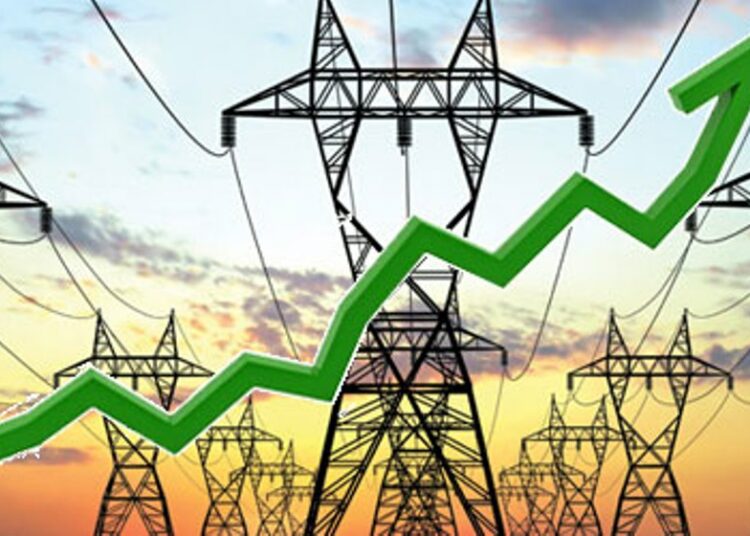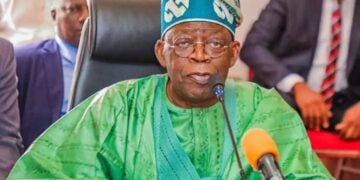The federal government spent N633.3 billion on electricity subsidies in the first quarter of 2024, despite a recent tariff increase, according to data from the Nigerian Electricity Regulatory Commission (NERC).
This represents a 150.5 per cent increase from N252.76 billion in Q4, 2023.
It also blamed the high subsidy on the absence of cost-reflective tariffs across all electricity Distribution Companies.
The NERC, in its 2024 first quarter report, noted that power distribution companies (DisCos) collected a total revenue of N291.6 billion.
The DisCos however recorded a shortfall in revenue collection as compared to electricity billed, as the total revenue collected by all DisCos in the period was N291.62 billion out of N368.65 billion billed to customers.
“It is important to note that due to the absence of cost-reflective tariffs across all DisCos, the government incurred a subsidy obligation of N633.30 billion in 2024/Q1, an average of N211.10 billion per month.”
This is despite the recent increase in tariff payable by electricity customers in Band A
NERC, in April 2024 approved a 240 per cent increase in electricity from N66 per kilowatt-hour to N225 per kilowatt-hour. This increase however affected only Band A customers, who benefit from 20 hours of electricity supply daily.
Also, licensed Electricity Distribution Companies (DisCos) remitted N110.62 billion out of the cumulative invoice of N114.12 billion in the first quarter (Q1) 2024.
This translates to a remittance performance of 96.93 per cent in Q1, 2024 compared to the 69.88 per cent recorded in fourth-quarter (Q4), 2023. The NERC, in its new report, also revealed that the Discos generated N291.62 billion in revenue in the first quarter (Q1) of 2024.
The rise in subsidy costs comes after NERC approved a tariff increase for customers under the Band A classification in April 2024.
The new tariff, which applies to customers receiving 20 hours of electricity supply daily, increased from N66 to N225 per kilowatt (kW) before dropping to N209/Kwh.
NERC had projected that the new tariff would reduce the 2024 fiscal year subsidy by approximately N1.14 trillion. However, the first-quarter data suggests that the subsidy burden remains high.
The report showed that, the N291.2 billion generated was collected out of the N368.65 billion bills distributed to customers, resulting in a collection efficiency of 79.11 per cent. This, according to the report, translates to an increase of over 5.32 per cent compared to the 73.79 percent collection efficiency in fourth-quarter (Q4) 2023.
The report showed that 123,604 meters were installed in Q1, 2024, and that the new installations increased the net end-user metering rate in the NESI by 0.40pp between fourth-quarter (Q4), 2023 (44.39 per cent) and first-quarter(Q1), 2024 (44.79 per cent).
The meters installation, according to the report, represented an increase of 8,423 installations (7.31 per cent) compared to the 115,181 meters installed in the fourth quarter (Q4), 2023.
The NERC further stressed that during the quarter, 114, 477 meters (92.62 per cent of the total installations) were installed under the MAP framework, while 14 meters were installed under the NMMP framework.
According to the NERC report, the DisCos cumulatively received 291,380 complaints from consumers in first-quarter (Q1), 2024, representing a decrease of -19,337 (-6.22 percent) compared to the 310,717 complaints received in fourth-quarter (Q4), 2023.
It said that metering, billing, and service interruption were the prevalent issues of customer complaints, accounting for more than 75 per cent of the total complaints during the quarter.
The report also revealed that none of its internal bilateral countries paid for the electricity they consumed from Nigeria during the first quarter of 2024.
The bilateral agreement, it would be noted, is from neighboring West African countries who have some agreements with some power generation companies in Nigeria on power supply through the West African power pool.
According to the report, the countries owe $ 14.19 million as invoices issued to them by the Market Operator (MO) for the electricity supplied in the first quarter of 2024.
Also, none of the bilateral customers within the country made any payment against the cumulative invoice of N1,860.11 million issued to them by the MO for services rendered in the first quarter (Q1) of 2024.
This disclosure comes amidst broader regulatory efforts to reform the Nigerian Electricity Supply Industry (NESI) and transition to a more sustainable market structure.
Meanwhile, the NERC has also issued a new order to transition the Nigerian Electricity Supply Industry (NESI) to a bilateral trading system.
This regulatory instrument, known as the ‘Order on the Transition to Bilateral Trading in the Nigerian Electricity Supply Industry,’ will take effect from July 25, 2024, and remain in force until further notice.
The order followed the unbundling of the defunct Power Holding Company of Nigeria Plc. (PHCN) and the privatisation of successor Generation Companies (GenCos) and Distribution Companies (DisCos).
We’ve got the edge. Get real-time reports, breaking scoops, and exclusive angles delivered straight to your phone. Don’t settle for stale news. Join LEADERSHIP NEWS on WhatsApp for 24/7 updates →
Join Our WhatsApp Channel









